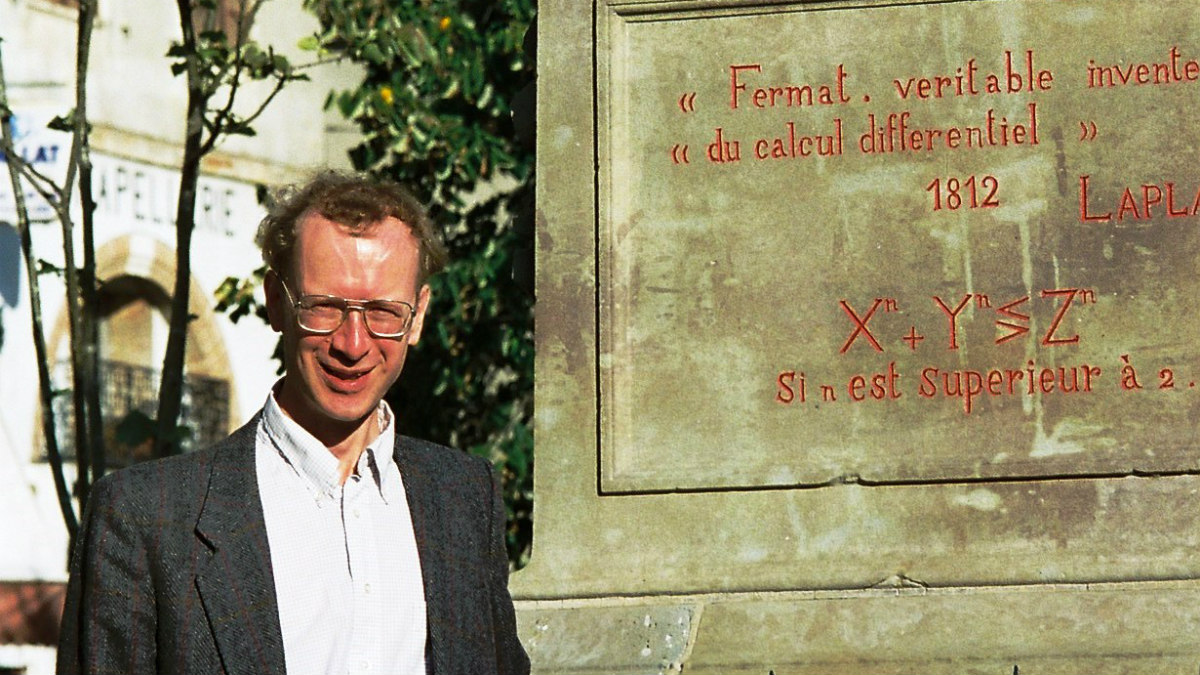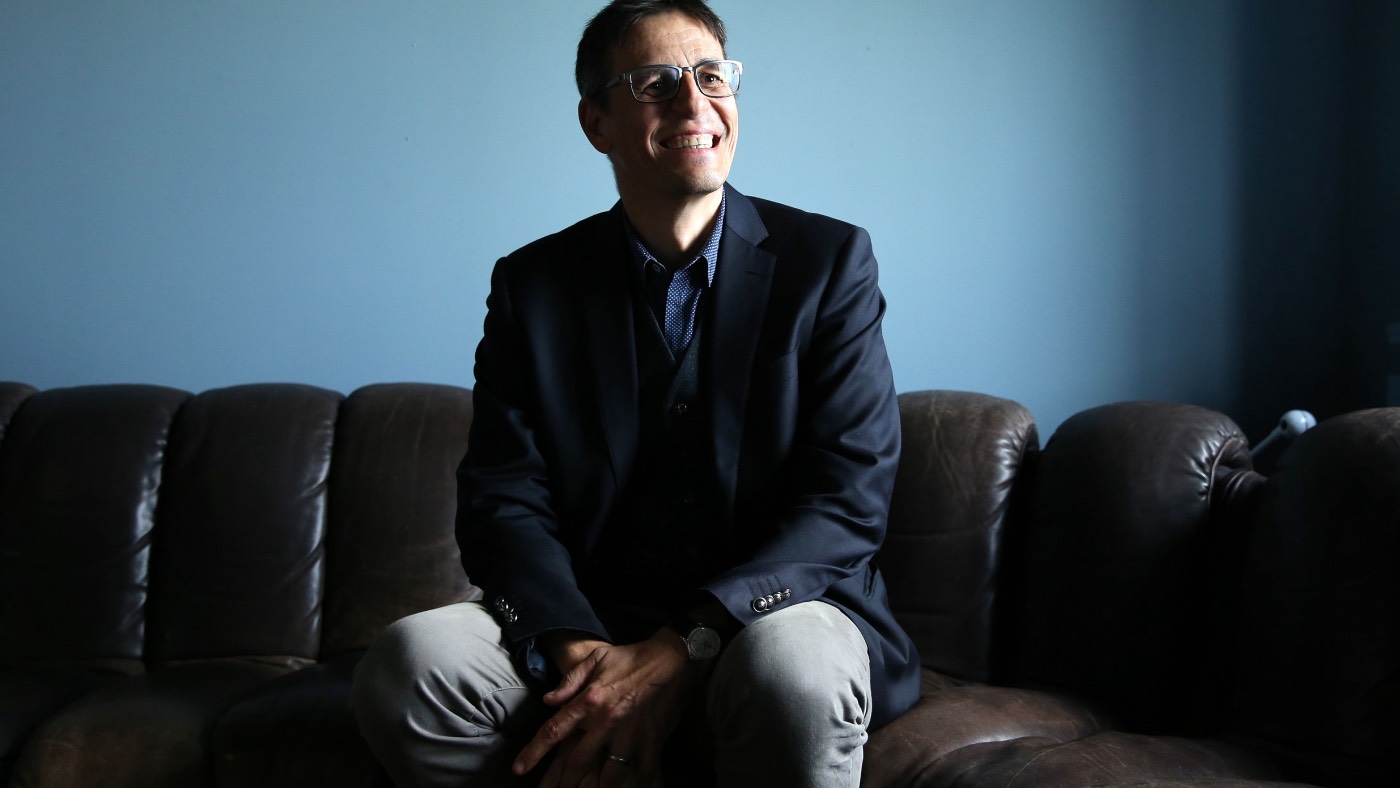Fermat's Last Theorem nets Oxford professor £500,000
Sir Andrew Wiles wins the mathematical 'Nobel prize' for solving centuries-old mystery

A free daily email with the biggest news stories of the day – and the best features from TheWeek.com
You are now subscribed
Your newsletter sign-up was successful
An Oxford academic who proved a mathematical theorem that had stumped scholars for 357 years has been named this year's recipient of an award described as the Nobel prize for maths.
Professor Sir Andrew Wiles has been awarded Norway's prestigious Abel prize - and six million krone (around £500,000) – for his "stunning" proof of Fermat's Last Theorem.
One of the best-known maths problems in the world, the theorem states that no three positive integers satisfy the equation x^n + y^n = z^n for any integer value of n greater than two. It was first formulated by Pierre de Fermat in 1637 but he never wrote it down, famously scribbling in margin of the text book he was using that the proof was too long to fit.
The Week
Escape your echo chamber. Get the facts behind the news, plus analysis from multiple perspectives.

Sign up for The Week's Free Newsletters
From our morning news briefing to a weekly Good News Newsletter, get the best of The Week delivered directly to your inbox.
From our morning news briefing to a weekly Good News Newsletter, get the best of The Week delivered directly to your inbox.
The theorem remained unsolved until 1993, when Prof Wiles, then working at Princeton University, declared he had a working proof.
The committee in Oslo called the publication of Wiles's work "an epochal moment for mathematics" and said it would open the door to a "new era in number theory".
The Cambridge-born academic had been working on the theorem for seven years, after first becoming interested in the problem as a child.
"Fermat's equation was my passion from an early age and solving it gave me an overwhelming sense of fulfilment," he told the Daily Telegraph. He added it was a "tremendous honour" to receive the Abel and hoped his success would inspire young people to pursue a career in mathematics.
A free daily email with the biggest news stories of the day – and the best features from TheWeek.com
Wiles, who was knighted in 2000, will receive his prize and cheque from Crown Prince Haakon of Norway in a ceremony in Oslo due to take place in May.
Previous winners of the prize include John F Nash, the subject of the 2001 film A Beautiful Mind.
-
 Political cartoons for February 15
Political cartoons for February 15Cartoons Sunday's political cartoons include political ventriloquism, Europe in the middle, and more
-
 The broken water companies failing England and Wales
The broken water companies failing England and WalesExplainer With rising bills, deteriorating river health and a lack of investment, regulators face an uphill battle to stabilise the industry
-
 A thrilling foodie city in northern Japan
A thrilling foodie city in northern JapanThe Week Recommends The food scene here is ‘unspoilt’ and ‘fun’
-
 Richard Branson’s Virgin Galactic and Jeff Bezos’s Blue Origin: the new space race?
Richard Branson’s Virgin Galactic and Jeff Bezos’s Blue Origin: the new space race?Speed Read Branson has declared space open for business. Is that still a pie in the sky?
-
 Russia and China joining forces to build first Moon base
Russia and China joining forces to build first Moon baseSpeed Read Lunar pact represents ‘all kinds of security threats’ to UK and US, expert warns
-
 Mystery of where Stonehenge stones came from finally solved
Mystery of where Stonehenge stones came from finally solvedSpeed Read But how the builders moved the huge stone megaliths to the Salisbury site remains a mystery
-
 How chimpanzee ‘lip smacking’ can unlock mystery behind human speech
How chimpanzee ‘lip smacking’ can unlock mystery behind human speechSpeed Read New study reveals rhythm of great apes’ communications is identical to spoken language
-
 Scientists discover new variety of black hole
Scientists discover new variety of black holeSpeed Read Astronomers had previously missed entire class of dead star
-
 Trio win Nobel physics prize for work to understand cosmos
Trio win Nobel physics prize for work to understand cosmosSpeed Read The scientists were hailed for ‘ground-breaking’ discoveries
-
 Quadriplegic man walks using mind-reading robotic exoskeleton
Quadriplegic man walks using mind-reading robotic exoskeletonSpeed Read Robo-suit hailed as huge step forward for paralysed patients
-
 Will ancient scrolls damaged by Vesuvius be read again?
Will ancient scrolls damaged by Vesuvius be read again?Speed Read Scientists believe they have developed technology to see what is on the famous scrolls